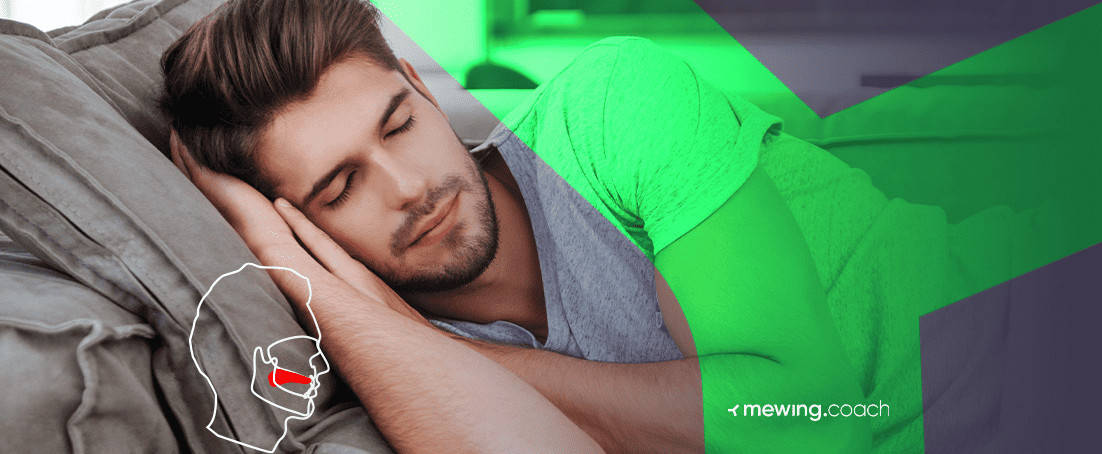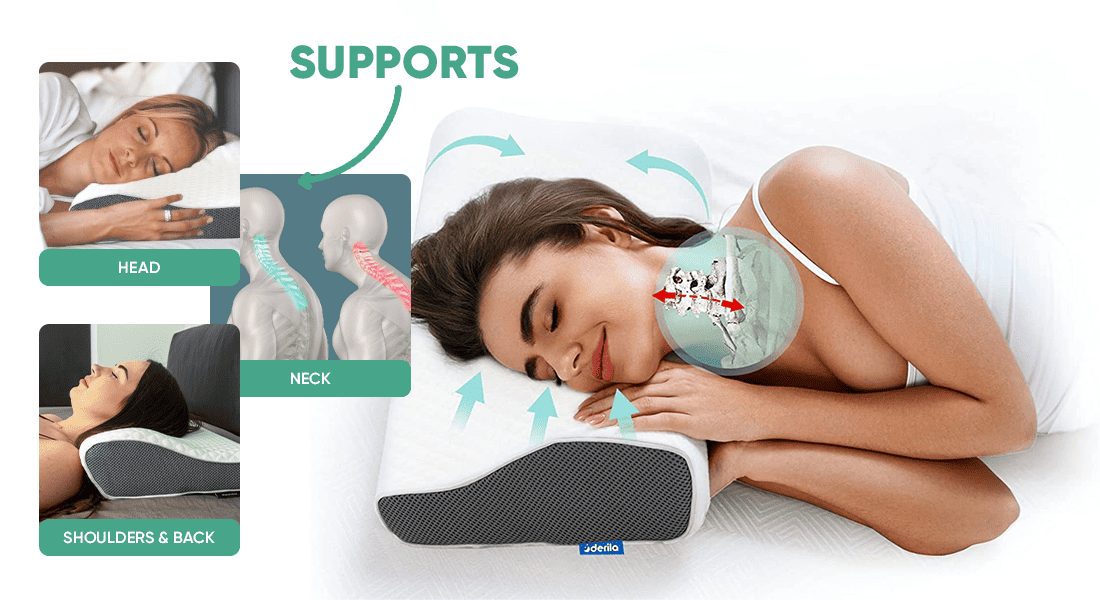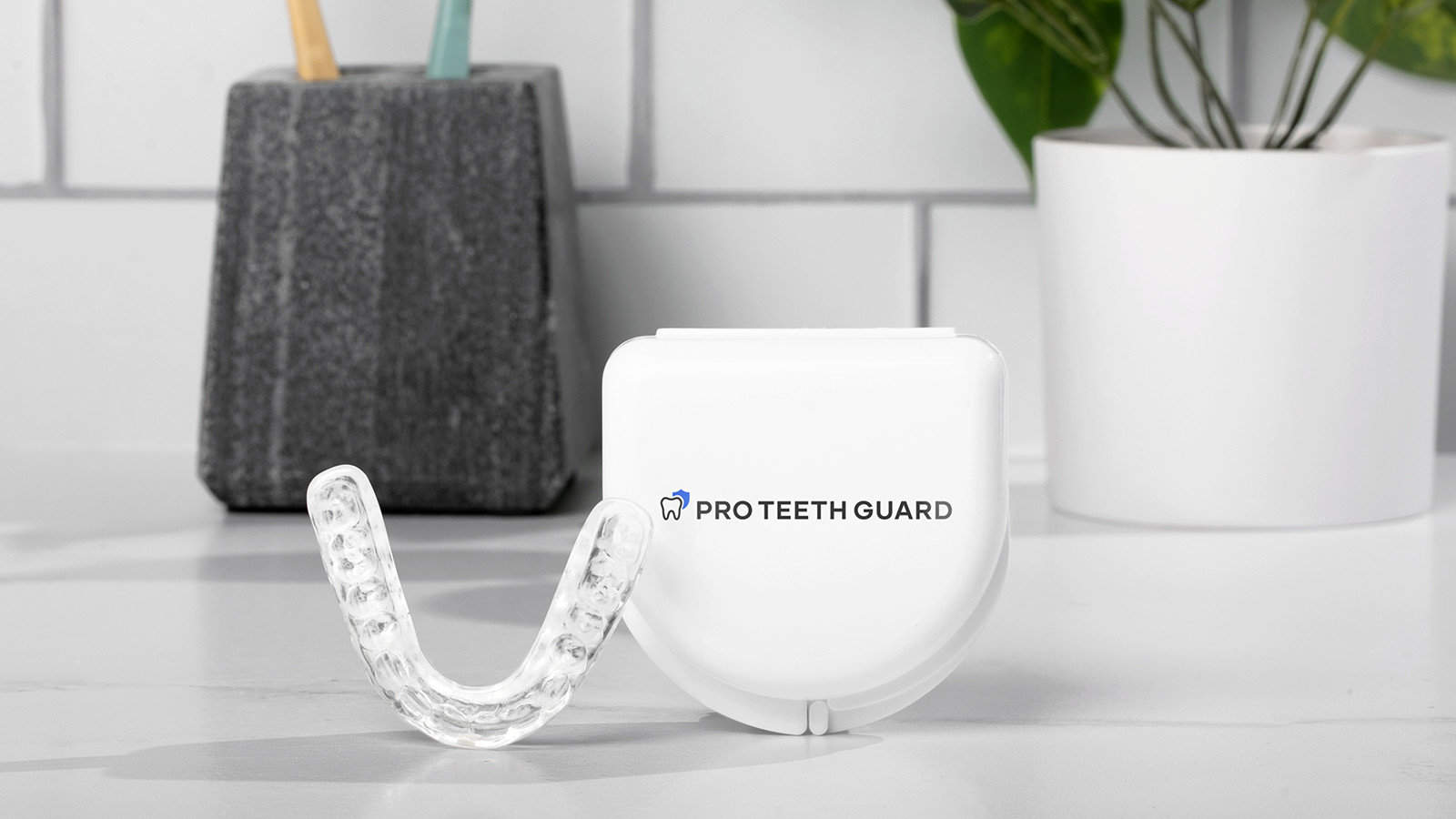
Suffering from unintentional teeth grinding and jaw clenching while you sleep is undoubtedly an unwanted discomfort. A study published by the National Institutes of Health reported that up to 8.6% of people experience teeth grinding or clenching during sleep. The condition can lead to headaches, facial pain, and disrupted sleep at night.
Whether it’s teeth grinding or clenching, a relaxed jaw is essential for better sleep quality. In this article, we’ll explore 6 easy tips to help you relax your jaw and drift off to a peaceful night sleep.
Common Causes of Jaw Clenching at Night
Many factors can contribute to jaw tension during sleep, including:
- Stress and Anxiety: These are leading culprits for teeth grinding (bruxism). Bruxism involves involuntary clenching, grinding, or gnashing of teeth, often happening subconsciously at night.
- Poor Sleep Posture: Awkward sleeping positions at night can strain your jaw muscles, leading to pain and discomfort. Imagine holding your jaw in an unnatural position for hours!
- Medical Conditions: Certain medical conditions, like Parkinson’s disease and some sleep disorders, can also cause involuntary jaw movements during sleep.
- Medications: Some medications, including antidepressants and certain ADHD medications, can have jaw clenching as a side effect.
The consequences of jaw clenching can be significant, including TMJ pain. The temporomandibular joint (TMJ) connects your jaw to your skull. Tension can lead to TMJ pain, headaches, and even difficulty chewing. Grinding teeth can also cause cracks, chips, and wear over time.
Seeking Relief: Natural Options and More
Thankfully, there are ways to combat night time jaw muscle clenching. You can try natural remedies for bruxism. Using a warm compress at night is one of the best home remedies, or you can try techniques like stress management and muscle relaxant exercises that can help reduce clenching or relieve a tight jaw.
Mewing for TMJ disorder management helps improve jaw alignment. It is a method that promotes proper tongue posture. To mew effectively, rest your entire tongue against the roof of your mouth, including the back, maintaining gentle, continuous contact, while also prioritizing nasal breathing for optimal results.
Incorporating mewing into your sleep apnea treatment can further help by preventing the tongue from obstructing the airways.
Side Effects Of Jaw Clenching
- Tooth wear, fractures, and sensitivity.
- Development of jaw pain, headaches, and muscle tension
- Jaw clenching can lead to TMJ disorders and associated symptoms
- Jaw clenching may contribute to sleep problems like insomnia or sleep apnea
- Possible connection between jaw clenching and ear-related issues like pain and ringing in the ears
- Chronic jaw clenching can cause facial pain and fatigue
It’s important to seek treatment for jaw clenching to prevent these complications. Treatment options may include dental interventions, stress management, physical therapy, and in some cases, medications or surgery. Always consult a healthcare professional for a proper diagnosis and personalized treatment plan.
6 Tips For Relaxing Your Jaw to Avoid Clenching
#1. Try Mewing – Jaw Exercises
Mewing is a technique that encourages proper tongue and jaw posture, potentially leading to improved jaw health. Developed by Dr. John Mew, mewing involves resting the tongue against the roof of the mouth, which may help in aligning the jaw correctly.
A consistent mewing routine can be beneficial for those looking to relax their jaw, especially during sleep. By maintaining the correct tongue posture, mewing can reduce the likelihood of jaw clenching and contribute to a more restful night’s sleep.
For those interested in exploring mewing further, the Mewing Coach app offers personalized programs, daily jaw relaxation exercises, and video guides to assist in mastering the technique. It’s a helpful resource for anyone looking to incorporate mewing into their daily routine for better jaw relaxation at night.
#2. Choosing the Right Pillow
When it comes to promoting jaw relaxation during sleep, choosing the right pillow is crucial. Shop for pillows crafted with memory foam or contoured designs, which gently cradle the head and neck, providing optimal support. Adjustable pillows offer customizable support and alignment for the jaw, ensuring personalized comfort at night.
Consider the height and firmness of the pillow, as these factors can significantly impact jaw comfort while sleeping. For those seeking a top-notch pillow option, the Derila Pillow stands out. Its innovative design enhances jaw relaxation and promotes a restful night’s sleep.

#3. Using Mouthguards or Splints
A mouth guard or splint serves as an effective tool in combating teeth grinding (bruxism) and alleviating jaw tension during sleep. Mouth guards and night guards are essential dental appliances designed to protect teeth and jaws, particularly against the detrimental effects of teeth grinding and clenching, commonly known as bruxism.
While the terms “mouth guard” and “night guard” are often used interchangeably, they serve slightly different purposes. A night guard is specifically worn during sleep to shield the teeth from grinding and clenching forces that may occur unconsciously during the night, whereas a mouth guard is a broader term that encompasses guards used during sports or physical activities to prevent dental injuries.
Both night guards and mouth guards provide a cushioning layer between the upper and lower teeth, absorbing the impact of grinding and clenching, thus reducing the risk of tooth wear, fractures, and TMJ-related issues. By distributing pressure evenly and promoting proper jaw alignment, these guards effectively protect the teeth and jaws from the harmful effects of bruxism.

Choose a custom-fit, durable mouth guard for maximum comfort and effectiveness against teeth grinding and clenching. Prioritize protection and breathability for optimal oral health and sleep quality. Explore our roundup of the best mouth guards for teeth grinding and clenching to make a suitable choice.
#4. Relaxation Techniques Before Bed
If you’re experiencing jaw tension before bedtime, there are several relaxing jaw exercises you can try to ease the discomfort and promote better sleep. Here are some methods to help relax your jaw muscles:
- Touch your tongue to the roof of your mouth and open your mouth wide for 5-10 seconds. Then, push your lower jaw as far out as you can and pull it back in.
- Try the Pencil Jaw exercise. Place a pencil between your teeth. Slide your jaw forward without dropping the pencil and hold for 20 seconds.
- Locate the notches of your masseter muscles under your cheekbones. Press your fingers into these notches and knead them for 30-60 seconds.
Stress can contribute to jaw discomfort at night. Consider relaxation techniques such as deep breathing exercises or progressive muscle relaxation to reduce overall stress levels.
Additionally, if you find yourself still tired after sleeping, consider other factors that might affect your sleep quality, such as sleep duration, sleep environment, and sleep hygiene at night.
Ensuring a comfortable sleep environment, and maintaining a consistent sleep schedule is essential for regulating the body’s internal clock and promoting optimal restorative sleep. Avoid caffeine or heavy meals close to bedtime as they can also make a difference in how rested you feel at night.
#5. Creating a Sleep-Friendly Environment
Your sleep environment plays a crucial role in jaw relaxation. Before bed, dim the lights and minimize screen time. The blue light emitted from electronics can disrupt sleep and worsen jaw clenching. Find your sleep sweet spot temperature-wise. A cool but comfortable room at night can promote relaxation and better sleep.
Minimize noise disruptions from outside or roommates. Consider using earplugs or white noise machines to create a calming soundscape that promotes deep sleep and relaxation.
#6. Sleeping Positions for Jaw Relaxation
Your sleeping position significantly impacts jaw tension. Back sleeping is generally considered the best position to relieve tension in jaw muscles. Ensure proper head and neck support with a comfortable pillow to keep your spine aligned.
Side sleeping can also be suitable. Use a supportive pillow that keeps your head, neck, and spine in a straight line to prevent jaw strain. Stomach sleeping is generally discouraged for jaw health as it can put strain on your jaw and neck muscles.
Relax and Rest Easy
We’ve explored a range of strategies and techniques to help you achieve a relaxed jaw and improve your overall sleep quality. By consistently incorporating these tips into your nightly routine, you can significantly reduce jaw tension and enjoy a more restful sleep.
If you experience persistent jaw clenching or discomfort, don’t hesitate to seek professional guidance from a dentist or doctor. They can help diagnose the underlying cause and recommend the most effective treatment plan for optimal sleep and jaw comfort.



